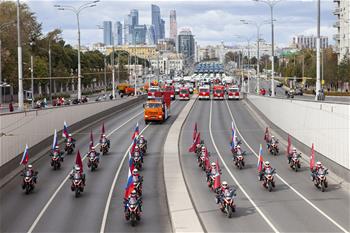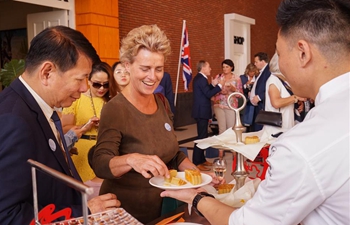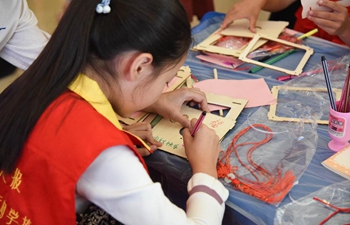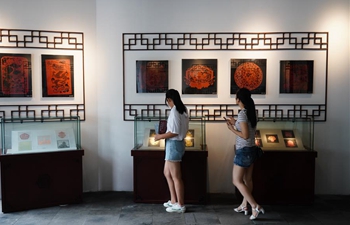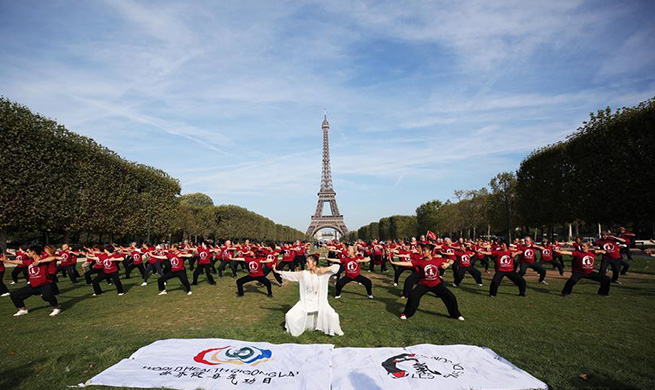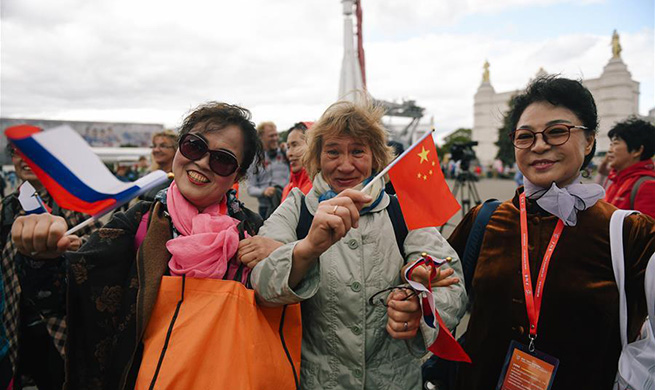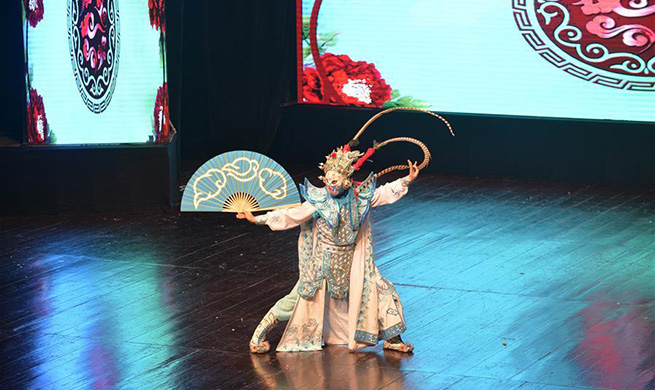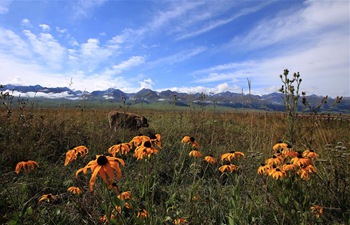by Fatima Aruri
RAMALLAH, Sept. 15 (Xinhua) -- Handwritten notes, concise or elaborate, showcased under the glass and special lighting, reveal feelings of Palestinian youths towards local folkloric dance and music some four decades ago, as a local dance group shows its archive with 40-year history to the public in Palestine.
Al-Funoun Dance Troupe, which dates back to as early as 1979, grew famous for its traditional dance performance known as Dabka. Now, the number of the troupe members reaches 206, including 86 dancers.
The troupe decided to open its archive to the public when "celebrating its 40th birthday," said one of the troupe's veterans, Khaled Qatamesh.
The archive is displayed in forms of documents, videos, voice recording, costumes, book collections, tapes and photos at a local cultural center's gallery in West Bank's Ramallah city for two months.
"This is no more than 10 percent of our archive over those years," Qatamesh said.
He explained that the troupe's members realized how important it was to document the group's experience.
"Documents between 1989 and 1993 have been missing, because we were driven by security concerns ... so we left no trace, but we kept working and performing," Qatamesh added.
Abeer Awwad, who was visiting the exhibited archive, said that her old membership form showed that she joined the troupe during her university days in 1981.
She told Xinhua that she worked with the troupe in one of its earliest performances.
"There were about 20 members when we started, and we were from all over Palestine," Awwad said, but as her family started to grow, she was unable to continue to dance.
However, she continued to follow the troupe and her children later joined as dancers.
"Showing the archive to the public allowed me to reconnect with my memories and it feels like that this is my personal archive, my friendships, my thoughts and my work," she said.
For years, members like Awwad and Qatamesh, have stayed with farmers in villages during the harvest seasons or come to occasions such as weddings and general celebrations to record the songs and study them.
As many of those recordings were made public for the audience, they are now believed to be a rich source of Palestinian cultural history.





